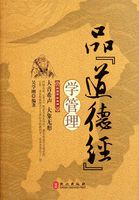"A madman must be confined, sir," replies Dr. Johnson. "But," says the other, "I am now apprehensive for his general health, he will lose the benefit of exercise." "Exercise!" returns the Doctor, "I never heard that he used any: he might, for aught I know, walk TO the alehouse; but I believe he was always CARRIED home again."It was, however, unlucky for those who delighted to echo Johnson's sentiments, that he would not endure from them to-day what perhaps he had yesterday, by his own manner of treating the subject, made them fond of repeating; and I fancy Mr. B---- has not forgotten that though his friend one evening in a gay humour talked in praise of wine as one of the blessings permitted by heaven, when used with moderation, to lighten the load of life, and give men strength to endure it; yet, when in consequence of such talk he thought fit to make a Bacchanalian discourse in its favour, Mr. Johnson contradicted him somewhat roughly, as I remember; and when, to assure himself of conquest, he added these words: "You must allow me, sir, at least that it produces truth; in vino veritas, you know, sir." "That,"replied Mr. Johnson, "would be useless to a man who knew he was not a liar when he was sober."When one talks of giving and taking the lie familiarly, it is impossible to forbear recollecting the transactions between the editor of "Ossian," and the author of the "Journey to the Hebrides." It was most observable to me, however, that Mr. Johnson never bore his antagonist the slightest degree of ill-will. He always kept those quarrels which belonged to him as a writer separate from those which he had to do with as a man; but I never did hear him say in private one malicious word of a public enemy; and of Mr.
Macpherson I once heard him speak respectfully, though his reply to the friend who asked him if ANY MAN LIVING could have written such a book, is well known, and has been often repeated--"Yes, sir, many men, many women, and many children."I inquired of him myself if this story was authentic, and he said it was.
I made the same inquiry concerning his account of the state of literature in Scotland, which was repeated up and down at one time by everybody--"How knowledge was divided among the Scots, like bread in a besieged town, to every man a mouthful, to no man a bellyful." This story he likewise acknowledged, and said, besides, "that some officious friend had carried it to Lord Bute, who only answered, 'Well, well! never mind what he says, he will have the pension all one.'"Another famous reply to a Scotsman who commended the beauty and dignity of Glasgow, till Mr. Johnson stopped him by observing, "that he probably had never yet seen Brentford," was one of the jokes he owned; and said himself "that when a gentleman of that country once mentioned the lovely prospects common in his nation, he could not help telling him that the view of the London road was the prospect in which every Scotsman most naturally and most rationally delighted."Mrs. Brooke received an answer not unlike this, when expatiating on the accumulation of sublime and beautiful objects, which form the fine prospect UP the River St. Lawrence, in North America. "Come, madam," says Dr.
Johnson, "confess that nothing ever equalled your pleasure in seeing that sight reversed; and finding yourself looking at the happy prospect DOWN the River St. Lawrence." The truth is, he hated to hear about prospects and views, and laying out ground and taste in gardening. "That was the best garden," he said, "which produced most roots and fruits; and that water was most to be prized which contained most fish." He used to laugh at Shenstone most unmercifully for not caring whether there was anything good to EAT in the streams he was so fond of, "as if," says Johnson, "one could fill one's belly with hearing soft murmurs, or looking at rough cascades!"He loved the sight of fine forest trees, however, and detested Brighthelmstone Downs, "because it was a country so truly desolate," he said, "that if one had a mind to hang one's self for desperation at being obliged to live there, it would be difficult to find a tree on which to fasten the rope." Walking in a wood when it rained was, I think, the only rural image he pleased his fancy with; "for," says he, "after one has gathered the apples in an orchard, one wishes them well baked, and removed to a London eating-house for enjoyment."With such notions, who can wonder he passed his time uncomfortably enough with us, who he often complained of for living so much in the country, "feeding the chickens," as he said I did, "till I starved my own understanding. Get, however," said he, "a book about gardening, and study it hard, since you will pass your life with birds and flowers, and learn to raise the LARGEST turnips, and to breed the BIGGEST fowls." It was vain to assure him that the goodness of such dishes did not depend upon their size.














